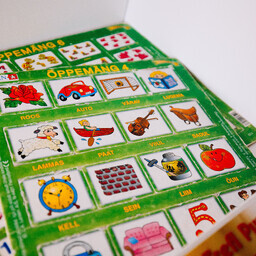At the end of last year, the Riigikogu adopted a new Early Childhood Education Act. It will come into effect this September. The new law means that children aged one and a half to three will attend childcare centers. Nursery groups will no longer exist.
The new law also brings new regulations. For example, there is now a national curriculum for early childhood education. This curriculum values planning educational and upbringing activities based on the child. Additionally, it sets out the expected general skills for a three-year-old child. For example, it means monitoring whether a three-year-old child can focus on play in a small group or follow simpler game rules.
The head of the Estonian Association of Early Childhood Education Leaders, Heda Kala, says that one important keyword is early detection. Since children start attending childcare centers from the age of one and a half, it is crucial to notice and support their development at such an early age. If there are deviations from age-appropriate development, the child can receive support as early as possible. Under the age of three is the best time to intervene and aid the child's development.
The CEO of the Union of Childcare Centers, Mari Kummeri, says that this development is positive. Childcare providers monitor how the child is doing, what skills they have acquired, and which ones need to be supported. This is an ongoing process throughout the entire academic year. It is not a test, but rather monitoring and providing feedback to parents.
Previously, there was no such obligation, but many childcare centers have already created their own curriculum and monitor child development. Maria Jürimäe, a teacher of general pedagogy at the University of Tartu, emphasized that setting general skills in the curriculum does not mean grading young children. It means monitoring and documenting their development.
It is very important that we do not lose anyone. If we notice problems or deficiencies early in someone, it may be due to their developmental environment. A kindergarten teacher or caregiver can discuss what is done with the child at home, how much time they spend, for example, in front of a screen. Perhaps the child would otherwise develop well, but an environment has been created for them that does not support this. This is exactly the point of this assessment.
The curricula for childcare centers must be ready by the end of next summer.

